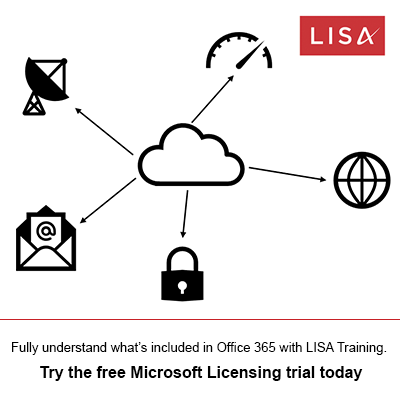Microsoft Services Provider License Agreement (SPLA) Quick Guide

“SPLA is the only licensing program that allows commercial hosting for Microsoft products, so is the only option for companies looking to provide a web/cloud based service.”
REGISTER FOR THE ITAM REVIEW NEWSLETTER TO DOWNLOAD THIS GUIDE AS A PDF.
What is SPLA?
The Microsoft Service Provider Licensing Agreement, or SPLA, is designed for organizations that want to offer their customers hosted software services including web services, database services and applications. These include services “you provide to your customers that make Microsoft products available and that display, run, access, or otherwise interact with Microsoft products” through servers “connected to the internet or a private network”.
SPLA is the only licensing program that allows commercial hosting for Microsoft products, so is the only option for companies looking to provide a web/cloud based service.
How is it licensed?
Offering a hosted service to multiple clients calls for an added degree of flexibility around purchasing and delivering Microsoft software. There are 3 options in the SPLA licensing model:
- Subscriber Access License (SAL): A SAL is required for each unique individual user or device that will access/use the product.
- Per Processor: Each Processor license allows an unlimited number of users to access the software installed on that processor.
- Per Core: This offers the same use rights as Per Processor (I.e. Unlimited user access) but is based on the number of cores in each physical processor.
What are the benefits?
With SPLA, there are no upfront costs and you pay only for what has been deployed to your customers. This enables Service Providers to be highly flexible and responsive to their customer’s needs, able to increase capacity and even add new services on the fly; all without any potentially costly long-term commitments.
Cloud services, which a hosted solution is, must not only be flexible but also up-to-date – so all products licensed through SPLA include “new version rights”. This means as Microsoft release new versions such as:
- SharePoint 2010
- SQL 2012
- Server 2008 R2
and more, Service Providers can include these in their solutions as soon as possible. This helps keep them, and their customers, relevant & competitive in today’s marketplace.
SPLA also gives Service Providers a 60 day trial period for each new deployment, meaning they’re able to deploy and test solutions for new customers without incurring any licensing costs from Microsoft. As not all solutions work for all customers, this is an invaluable benefit enabling hosters to offer their services to the maximum number of potential clients whilst limiting the losses on any failed projects.
How is usage managed?
SPLA, as with most Microsoft licensing, is a predominantly trust based system and Service Providers simply report back their software usage to their LAR (Large Account Reseller) on a monthly basis. This means Service Providers must be aware of how Microsoft products are licensed (by user, by processor, by core) and how their hardware infrastructure can impact what must be reported.
Controlling Costs
For example, if you’re getting new servers for your SQL farm and you broker a deal that allows you to get new 6-core CPUs for the same cost as quad-core – that’s great right? Perhaps…but it will add 50% per processor onto your SQL licensing costs, if you’re offering SQL 2012 to your customers. In order to control costs, and to ensure compliance, Service Providers must be aware of the licensing implications of changes to their infrastructure as well as the services they offer.
How to Purchase SPLA
The options for purchasing SPLA in the UK are much more limited than other forms of Microsoft licensing, with only 5 resellers in the country. In fact, most countries in the EMEA (Europe, Middle East & Africa) region have just 3 resellers to choose from. You can find resellers in your region here:
https://www.microsoft.com/hosting/en/us/licensing/splahowto.aspx
In the US & Canada, SPLA is also available via Ingram Micro as a sole distributor and there is talk that SPLA in the UK will be extended in a similar manner.
A storm in the world of SPLA
A recent news story that garnered a lot of attention in the hosting/SPLA/Licensing/VDI worlds was that of Onlive and their Desktop-As-A-Service (DAAS) offering. This service offered a Windows 7 desktop to every user via the iPad and other hardware, something which flew straight in the face of Microsoft’s licensing terms as explained by Joe Matz, Corporate VP of Worldwide Licensing & Pricing (WWLP):
“Customers that want to work with partners to have them host Windows 7 in a VDI solution on their behalf, can do so when the customer provides the partner licenses through the customer’s own agreements with Microsoft. The hosting hardware must be dedicated to, and for the benefit of the customer, and may not be shared by or with any other customers of that partner”
 So to have a hosted Windows 7 VDI solution the client must use their own Volume Licensing agreement (such as Open, Select, Enterprise Agreement) to purchase the Windows VDA licences required for the solution.
So to have a hosted Windows 7 VDI solution the client must use their own Volume Licensing agreement (such as Open, Select, Enterprise Agreement) to purchase the Windows VDA licences required for the solution.
The second part of the above paragraph “the hosting hardware must be dedicated to…the customer” takes away the whole business concept of hosting – multi tenancy. This is using virtualization technologies to run multiple virtual servers on a single physical server, and is how all hosted software offerings work…including Microsoft’s Office 365.
Forcing the hosting provider to buy a separate physical box for each of its customers makes it very hard to profitable without charging an exorbitant rate per user…thus making it near impossible to offer such a service.
“Microsoft partners who host under the Services Provider License Agreement (“SPLA”) may bring some desktop-like functionality as a service by using Windows Server and Remote Desktop Services. Under this solution, the partner is free to offer this service to any customer they choose, whether or not they have a direct licensing agreement with Microsoft. However, it is important to note that SPLA does not support delivery of Windows 7 as a hosted client or provide the ability to access Office as a service through Windows 7. Office may only be provided as a service if it is hosted on Windows Server and Remote Desktop Services”
After a lengthy silence, angry blog posts from Guise Bule (of OnLive rival TuCloud) threatening to launch a similar service and VDI supremo Brian Madden quitting their “Most Valuable Professional” programme, Microsoft announced that OnLive had changed their offering to provide the service via Windows Server & Remote Desktop Services.
Review:
If you’re looking to start a new hosted service and/or transfer an existing onsite offering to the Cloud, and you utilise any Microsoft products, SPLA licensing must be on your list.
REGISTER FOR THE ITAM REVIEW NEWSLETTER TO DOWNLOAD THIS GUIDE AS A PDF.
Licensing Notes:
Products available as both “Per Processor” and “SAL”:
- HPC Pack 2008 R2 Enterprise
- SQL Server 2008 R2 Standard, Enterprise, and Workgroup
- Windows HPC Server 2008 R2 Suite
- Windows Server 2008 R2 HPC Edition
- Windows Server 2008 R2 Standard and Enterprise
- Microsoft Dynamics AX 2012
- Microsoft Dynamics C5 2012
- Microsoft Dynamics GP 2010 R2
- Microsoft Dynamics NAV 2009 R2
- Microsoft Dynamics SL 2011
Products available via “Per Processor” model:
- BizTalk Server 2010 Branch Edition
- BizTalk Server 2010 Enterprise Edition
- BizTalk Server 2010 Standard Edition
- Commerce Server 2009 R2 Enterprise Edition
- Commerce Server 2009 R2 Standard Edition
- Core Infrastructure Server Suite Datacenter
- Core Infrastructure Server Suite Standard
- Forefront Threat Management Gateway 2010 Enterprise
- Forefront Threat Management Gateway 2010 Standard
- HPC Pack 2008 R2 Enterprise
- Microsoft Dynamics AX 2012
- Microsoft Dynamics C5 2012
- Microsoft Dynamics GP 2010 R2
- Microsoft Dynamics NAV 2009 R2
- Microsoft Dynamics SL 2011
- Provisioning System
- Search Server 2010
- SharePoint Server 2010 for Internet Sites Enterprise
- SQL Server 2008 R2 Datacenter
- SQL Server 2008 R2 Enterprise
- SQL Server 2008 R2 Standard
- SQL Server 2008 R2 Workgroup
- SQL Server 2008 R2 Web
- System Center 2012 Datacenter
- System Center 2012 Standard
- Windows HPC Server 2008 R2 Suite
- Windows Server 2008 R2 Datacenter
- Windows Server 2008 R2 Enterprise
- Windows Server 2008 R2 for Itanium-based Systems
- Windows Server 2008 R2 HPC Edition
- Windows Server 2008 R2 OEM Standard and Enterprise
- Windows Server 2008 R2 Standard
- Windows Web Server 2008 R2
Products available via “Per Core” model:
- SQL 2012 Std
- SQL 2012 Ent
- SQL 2012 Web
Can’t find what you’re looking for?
More from ITAM News & Analysis
-
Broadcom is removing expired VMware licences from its portal - take action now!
Hot on the heels of Broadcom’s announcement of the end of perpetual licences for VMware it has given customers barely a week to download any keys for licenses from its portal with expired support. This is ... -
Who Loses When Broadcom Wins?
News of a new Broadcom deal rarely arrives with great fanfare. The November 2023 VMware acquisition provoked open worry online and in business circles, with many critics wondering whether the former Hewlett-Packard spinoff’s reputation would prove ... -
Software Vendor Insights: What do the numbers tell us about the opportunities for ITAM negotiations?
What software vendor insights can be gained from the latest financial results from Amazon, Google, Broadcom, Salesforce, IBM and SAP? An important part of ITAM is paying close attention to the health of the companies we ...